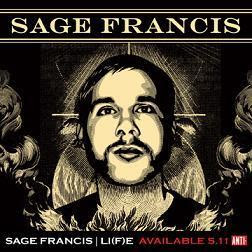In the era of the Internet we're facing a crisis around the new reality of intellectual property and copyright. These legal rights were established over hundreds of years to reward creators of ideas, but at the same time preserve and protect the public's right to access and make use of the expression of ideas.
But slow expansion of the laws of intellectual property through the 20th century, and more recently the emergence of new digital technologies, the Internet in particular, have upset the delicate balance between the rights of creators and the rights of the public. Copyright law has been changed, again and again, in what many perceive as an expansion of the rights and control of the emerging "content industries." Copyright law today covers more kinds of expression, lasts considerably longer, and comes with considerably more stringent enforcement than it has in the past.
When you download music or text from the web, you may be innocently breaking the law. Jim Lebans, a producer with CBC Radio’s Quirks and Quarks, looks at the tangled world of intellectual property and how the digital age is challenging ideas about who owns our culture.
The challenges to Intellectual property rights have expanded as well. While in the past the tools of copyright infringement were industrial - printing presses or record-pressing facilities, today they're available on every desktop. Writing, music, movies, television, indeed every form of communication and expression can be digitized, and perfect copies distributed without limit. As a result the digital revolution has been perceived as a nightmare to the owners of creative property.
This might seem to clearly justify an expansion of IP law and its enforcement, but many critics of the direction IP law has taken disagree. They suggest that the opportunities that digital technologies present, and the abilities they give to ordinary people to make use of cultural material creatively is too valuable to be sacrificed.
This tension has become known as the copyfight, and it's ultimately a dispute about who owns ideas.
Featured in this program are:
Graham Henderson, president of
The Canadian Recording Industry Association.
Eric Flint, writer and editor. Mr. Flint has a long association with science fiction publisher
Baen Books, and with Jim Baen founded the
Baen Free Library,
which distributes free digital books in open formats as a promotional vehicle for the company. Mr Flint has written extensively on IP issues as editor of the web magazine
Jim Baen's Universe.
James Boyle , William Neal Reynolds Professor of Law and co-founder of the Center for the Study of the Public Domain at Duke Law School and chairman of the board of
Creative Commons. His new book, T
he Public Domain: Enclosing the Commons of the Mind, will be published shortly by the Yale University Press.
Siva Vaidhyanathan, professor of media studies in the
University of Virginia School of Law. He's also the author of
Copyrights and Copywrongs: The Rise of Intellectual Property and How it Threatens Creativity.
Cory Doctorow, writer, journalist and Internet pundit. He's also the founder of popular blog
Boing Boing.
Jane Ginsburg, Morton L Janklow Professor of Literary and Artistic Property Law.
She has many papers on Intellectual Property law, including
How Copyright Got a Bad Name For Itself.
Dr. Michael Geist, law professor at the University of Ottawa where he holds the Canada Research Chair of Internet and E-commerce Law. He's also a columnist on digital issues for
The Toronto Star.
Steven Page, singer, songwriter and member of the
Barenaked Ladies.
He's also one of the founding members of the
Canadian Music Creators Coalition.
Music used in this program from free sources:
Bach - Fantasia in B Minor
Yankee Doodle Variations
Open Season on Bach




















